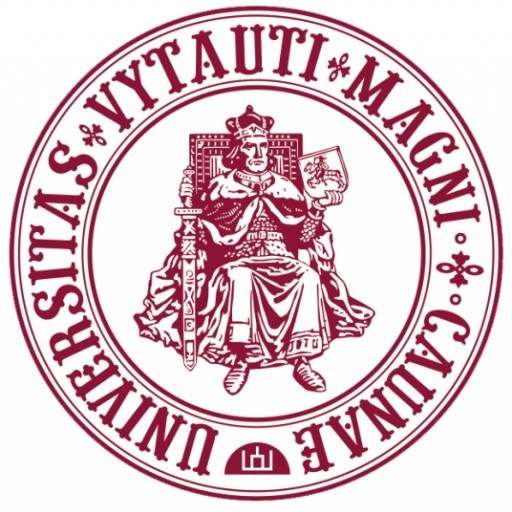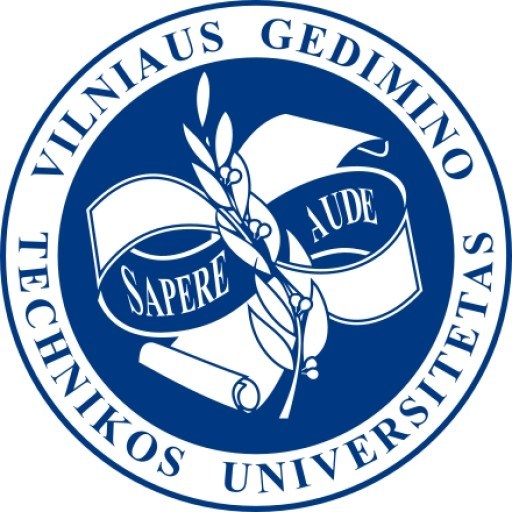Photos of university / #vduni
The aim of Biotechnology undergraduate programme is empower specialists to develop intellectual competencies in order to be capable to participate in research advancements, to take responsibilities in research and practice developments as well as to disseminate knowledge.
Bachelor's study program in Biotechnology is designed for those who want to connect their lives with biotechnology. The goal of the program is to train professionals who understand the fundamental biotechnology processes that take place at various levels of the biological systems organization, from molecules to multicellular organisms, cell function, and regulatory processes.
During studies, students acquire fundamental knowledge about natural phenomena and their quantification, materials and elements used in engineering and biotechnology, and their properties. Students learn to work with test and measurement equipment, apply modern research methods, evaluate and interpret information and data; acquires skills in the use of information technology.
Why Biotechnology programme?
- Biotechnology combines the disciplines of biology and chemistry and utilizes mathematics and physics to provide the tools for modern biology and biomedical research.
- Biotechnology utilizes living cells and cellular materials to create pharmaceutical, diagnostic, agricultural, environmental, and other products to benefit society. It is also used to study and to alter genetic information in animals so that human diseases can be modeled and studied.
- Biotechnology is both a basic and an applied science. These technologies are applied in agriculture, health care, forensics, industrial processing, and environmental management in many useful ways.
- Modern technologies are evolving rapidly, so new information has to be absorbed while working. The ability to quickly understand it and learn is highly valued by employers. And that ability depends on a solid foundation in the natural and technical sciences provided by biotechnology studies.
Feedback of Lecturer
Biotechnology programme gives very broad choice for career opportunities in variety of science and industry fields.
Prof. Gintautas Saulis
Professors
Professors of the field of biotechnology collaborate with the researchers of the same field from other countries and take part in international organizations, networks, editorial boards of science journals as well as participate in international projects. All of these activities also encourage academic mobility, especially that of international conferences.
Professors are members of international and national associations and organizations; they work as experts for different institutions. They are also members of the editorial boards of international journals – Biologija (Biology), Acta Biologica Universitatis Daugavpiliensis, Food Chemistry and Technology.
- Prof. R. Daugelavičius. President of Lithuanian Biochemical Society, council member of the Faculty of Natural Sciences VMU, expert council member of Agency for Science.
- Prof.habil.dr. A.Maruška is president of Nordic Separation Society, a member of Lithuanian Humbolthians Society.
- Prof. G.Saulis is a member of Bioelectrochemical Society, European Bioelectromagnetics Association, International Society on Pulsed Power Applications, European Federation of Biotechnology, members of Lithuanian Biophysical Society.
- Prof. habil. dr. V. Mildažienė are members of Lithuanian Biochemical Society.
Competencies acquired
Graduates of the programme are able to:
- Apply fundamental knowledge of biology, biological processes, and the scientific method to solve problems in biotechnology.
- Integrate biological knowledge and concepts with the legal, ethical, and business perspectives of the biotechnology/life sciences industry.
- Work in groups or individually to develop written and oral presentations that effectively communicate scientific concepts and opinions using language appropriate to the discipline.
- Apply major quantitative and computational skills and tools to solve problems in the biotechnology/life sciences industry.
- Work in biotechnological industry laboratories.
- Plan and conduct reliable, evidence-based laboratories, field studies or industry-focused projects, by selecting and applying methods, techniques and tools.
- Naturally manipulate processes in the development of new medicine, food and organic substances.
- Apply scientific methods and good experimental designs in scientific experiments.
- Empower themselves for lifelong learning and career in biotechnology.
Career opportunities
Graduates of technological sciences are able to develop new products using economical biological materials and phenomena; is able to evaluate engineering solutions and biotechnology activities from ethical, social, economic and professional aspects; to define new and significant opportunities and problems of research and development in the field of study. Upon completion of the first cycle study program in Biotechnology, a bachelor's degree in technology is obtained, which allows for further studies in the master's degree programs in applied biotechnology, biotechnology and pharmaceutical analysis, biology, bioengineering, molecular biology and biotechnology.
Completing study programme you will be able to work:
- Research science positions in laboratories applying biotechnology to problems in medicine, industry, and agriculture.
- Laboratory and production technician positions in biotechnology, pharmaceutic, food, cosmetic, agriculture and biochemical industries.
- Companies related to biotechnology, biopharmaceutics, health services, environmental agencies, cosmetic, environmental control and food industry.
- Management positions in the biotechnology industry and related government institutions.
- Positions at companies that are investing in biotechnology.
- Following study opportunities at Master's Degree level: Biology, Molecular Biology and Biotechnology, Biochemistry, Biophysics, and other master programmes related to physical, technological and biomedical sciences.
- A high school diploma or equivalent degree (Mathematics, Biology and/or Chemistry have to be included into curriculum).
- Proof of English Language proficiency: applicant has to present document proving B2 level (TOEFL 87-109 iBT/534-633 PBT, IELTS 5,5-6,5, Cambridge English First (FCE) 161-180, BEC Vantage 161-180, Michigan ECCE (min. 650), PTE General Level 3, TOEIC Listening & Reading 785, TOEIC Speaking & Writing 310, Duolingo 100-125, EnglishScore 400-499) if the applicant is not native speaker and/or had not received education in English.
- Admission score is counted based on: Motivation letter*0,3 + English*0,3 + Mathematics*0,2 + Biology or Chemistry *0,2.
Want to improve your English level for admission?
Prepare for the program requirements with English Online by the British Council.
- ✔️ Flexible study schedule
- ✔️ Experienced teachers
- ✔️ Certificate upon completion
📘 Recommended for students with an IELTS level of 6.0 or below.
Scholarships: https://www.vdu.lt/en/studies/scholarships/










